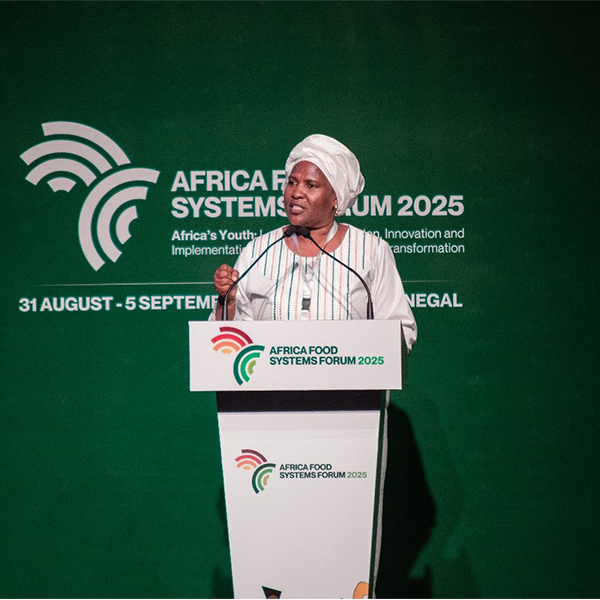The 2025 Africa Food Systems Forum (AFSF) opened in Dakar with grandeur, but beneath the celebration came a stark and uncompromising reality check. In a rousing address that cut through the ceremony, AGRA President Alice Ruhweza challenged Africa’s leaders and partners to stop recycling promises and start delivering measurable change.
Ruhweza’s message was unapologetically clear: Africa can no longer afford the luxury of rhetoric. With millions of citizens going to bed hungry and widespread malnutrition undermining development, she condemned the economic paradox of a continent still importing $75 billion worth of food each year. “We still have millions of people going around hungry, we still have malnutrition,” she declared — reminding stakeholders that hunger in Africa is not just a tragedy, but an unacceptable act of self-sabotage.
Yet her tone was not one of despair, but of defiant possibility. She spotlighted Africa’s young innovators who are already reshaping agriculture with bold ideas, proving that the next generation of food system leaders is not a dream of tomorrow — it is a force here today.
Ruhweza issued a direct call to action: governments, private sector actors, researchers, and farmers must urgently align behind the Malabo Declaration and the Comprehensive Africa Agriculture Development Programme (CAADP). But alignment on paper is not enough — she demanded national governments translate continental blueprints into concrete strategies, real investments, and enabling policies that can unlock the billions in private capital needed to drive scale.
She did not mince words on the gaps holding Africa back. Weak infrastructure and fragmented markets, she argued, will continue to choke agricultural potential unless addressed head-on. Technology and innovation can be engines of transformation, but without deliberate policy reform and financing, they will remain boutique solutions instead of mass revolutions.
Ruhweza’s speech cut through the noise: innovation alone cannot feed Africa. What is required is political courage, investment discipline, and unwavering accountability.
As she closed, Ruhweza put the weight of responsibility squarely on the shoulders of those in the room: “Do not leave this forum with only new ideas. Leave with a renewed sense of duty — and a clear plan to turn ideas into action.”
Her words were not just a contribution to the opening ceremony — they were a challenge, a warning, and a rallying cry. The message from Dakar is unmistakable: the time for talk has ended; the time for bold, united action to secure Africa’s food future is now.





